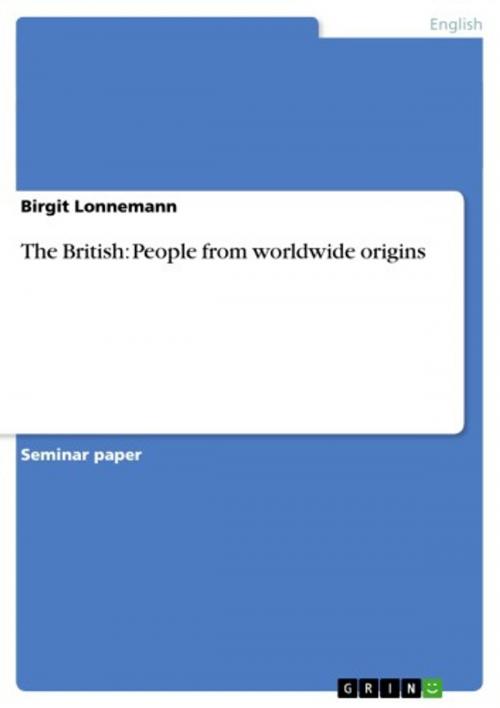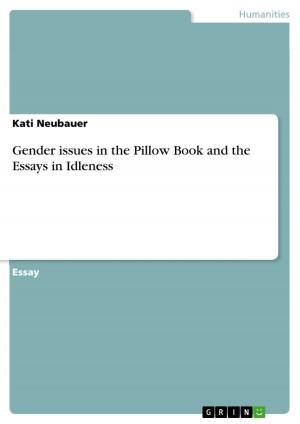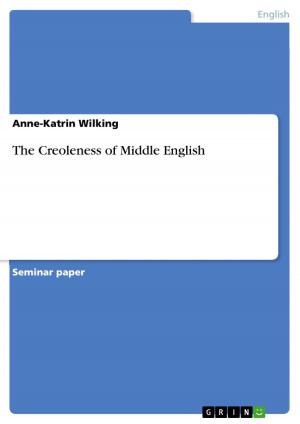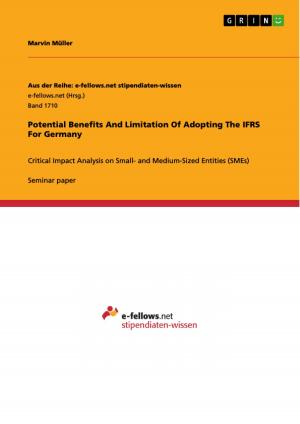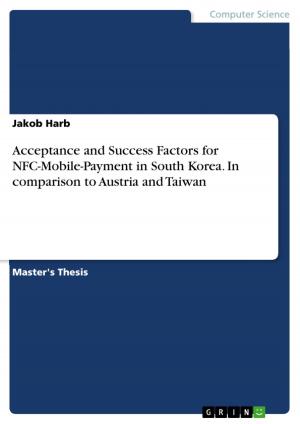The British: People from worldwide origins
Nonfiction, Reference & Language, Study Aids, ESL, Foreign Languages| Author: | Birgit Lonnemann | ISBN: | 9783640200825 |
| Publisher: | GRIN Publishing | Publication: | November 4, 2008 |
| Imprint: | GRIN Publishing | Language: | English |
| Author: | Birgit Lonnemann |
| ISBN: | 9783640200825 |
| Publisher: | GRIN Publishing |
| Publication: | November 4, 2008 |
| Imprint: | GRIN Publishing |
| Language: | English |
Seminar paper from the year 1999 in the subject English Language and Literature Studies - Culture and Applied Geography, grade: 1,7, University of Osnabrück (Fachbereich Sprach- und Literaturwissenschaften), course: Constructing Britishness: Fiction, Film, Press, 12 entries in the bibliography, language: English, abstract: 'We call our islands by no less than six different names, England, Britain, Great Britain, the British Isles, the United Kingdom and, in very exalted moments, Albion.' This quotation taken from George Orwell's essay England, Your England (1941) clearly shows that the names quoted above are often used as synonyms, although they patently are not. So it is no surprise that some people define themselves as being 'Englishsorrybritish' - a term which occurred in the newspapers several times over the last few months. A lot of people seem to be quite confused about their identity, about who they are and where they belong. But using the words 'English' and 'British' interchangeably is, in my opinion, not very fair - especially with regard to the inhabitants of Scotland, Wales and Northern Ireland. In fact, the so-called United Kingdom of Great Britain and Northern Ireland comprises four different indigenous nations: English, Scottish, Welsh and Northern Irish. And considering the fact that the British Isles (cf. map 1, page 2) - of which the United Kingdom3 is a part - have attracted settlers and immigrants for several centuries, it is not surprising that the contemporary British are a very diverse people, or - as is stated in the title of my paper - people from worldwide origins. The question arises whether the majority of people in the United Kingdom consider themselves to be British or rather to be English, Scottish, Welsh, Northern Irish or part of any other community often referred to as a so-called ethnic minority group.
Seminar paper from the year 1999 in the subject English Language and Literature Studies - Culture and Applied Geography, grade: 1,7, University of Osnabrück (Fachbereich Sprach- und Literaturwissenschaften), course: Constructing Britishness: Fiction, Film, Press, 12 entries in the bibliography, language: English, abstract: 'We call our islands by no less than six different names, England, Britain, Great Britain, the British Isles, the United Kingdom and, in very exalted moments, Albion.' This quotation taken from George Orwell's essay England, Your England (1941) clearly shows that the names quoted above are often used as synonyms, although they patently are not. So it is no surprise that some people define themselves as being 'Englishsorrybritish' - a term which occurred in the newspapers several times over the last few months. A lot of people seem to be quite confused about their identity, about who they are and where they belong. But using the words 'English' and 'British' interchangeably is, in my opinion, not very fair - especially with regard to the inhabitants of Scotland, Wales and Northern Ireland. In fact, the so-called United Kingdom of Great Britain and Northern Ireland comprises four different indigenous nations: English, Scottish, Welsh and Northern Irish. And considering the fact that the British Isles (cf. map 1, page 2) - of which the United Kingdom3 is a part - have attracted settlers and immigrants for several centuries, it is not surprising that the contemporary British are a very diverse people, or - as is stated in the title of my paper - people from worldwide origins. The question arises whether the majority of people in the United Kingdom consider themselves to be British or rather to be English, Scottish, Welsh, Northern Irish or part of any other community often referred to as a so-called ethnic minority group.
